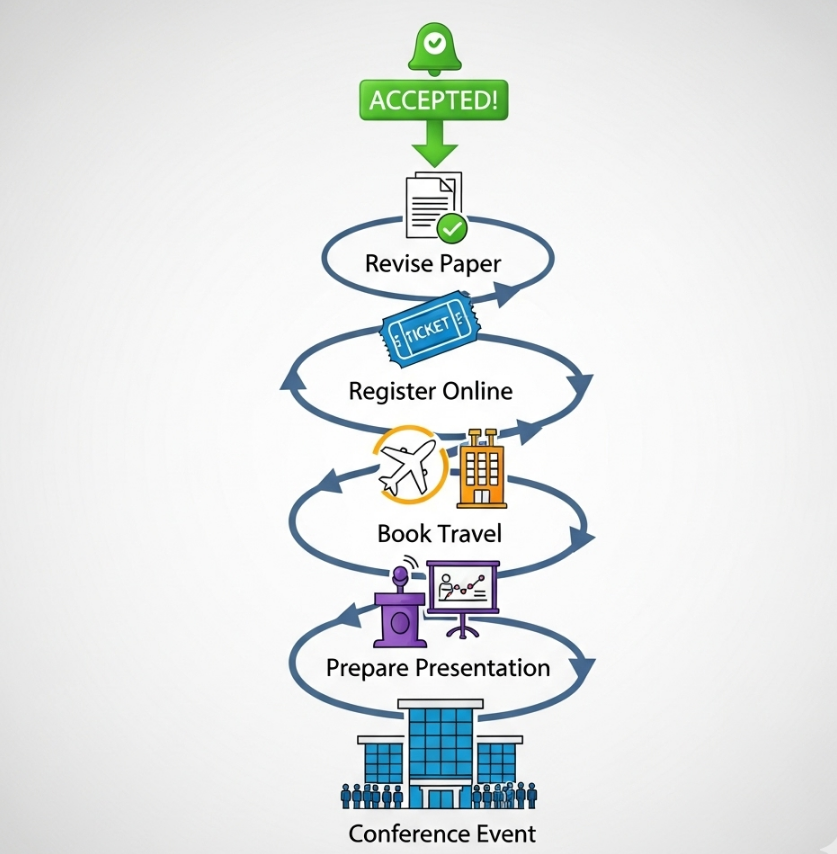

174 views||Release time: Sep 28, 2025
After months of hard work, you’ve received the email you’ve been waiting for: "We are pleased to inform you that your paper has been accepted..." It's a moment of celebration and a huge validation of your research.

But once the initial excitement subsides, you'll realize that acceptance is not the finish line. It's the start of a new set of crucial tasks to ensure your paper is published and your presentation is a success. This step-by-step guide provides a clear checklist of what you need to do after your conference paper is accepted.
(Current Date: Sunday, September 28, 2025. If your conference is in early 2026, these steps are time-sensitive.)
Phase 1: Immediate Steps (The First 1-2 Weeks)
These tasks are your top priority and often have tight deadlines.
1. Read the Acceptance Email and Reviewer Comments Carefully This email contains critical information. Before you do anything else, read it thoroughly and identify:
2. Prepare Your "Camera-Ready" Paper This is the final version of your manuscript that will be published in the conference proceedings.
3. Complete and Submit the Copyright Form To publish your paper, the conference needs the legal right to do so. You will be required to complete a copyright transfer form, which is usually done electronically. This is a mandatory step.
4. Register for the Conference (Before the Early-Bird Deadline!) Virtually all conferences require that at least one author registers for the event for the paper to be included in the proceedings.
Phase 2: Planning and Logistics (1-3 Months Before)
Once the paperwork is done, focus on getting yourself to the conference.
5. Apply for a Visa Immediately (If Required) For international travel, the visa application is the most time-consuming and unpredictable part of the process. Start it as soon as possible. You will typically need the official Letter of Invitation from the conference (usually provided after you register) to complete your application.
6. Book Your Flights and Accommodation
Phase 3: Presentation Preparation (The Final Month)
Now it's time to prepare to share your research with the world.
7. Design Your Presentation (Oral or Poster)
8. Plan Your Networking Strategy Scan the conference program ahead of time. Identify keynote speakers you want to see and authors of interesting papers you'd like to meet. Prepare a brief, 30-second "elevator pitch" about yourself and your research.
Conclusion
Getting your paper accepted is a fantastic accomplishment. By following this checklist, you can ensure the post-acceptance process is smooth and stress-free. This allows you to focus on what truly matters at the conference: sharing your research, learning from others, and building invaluable connections in your field.